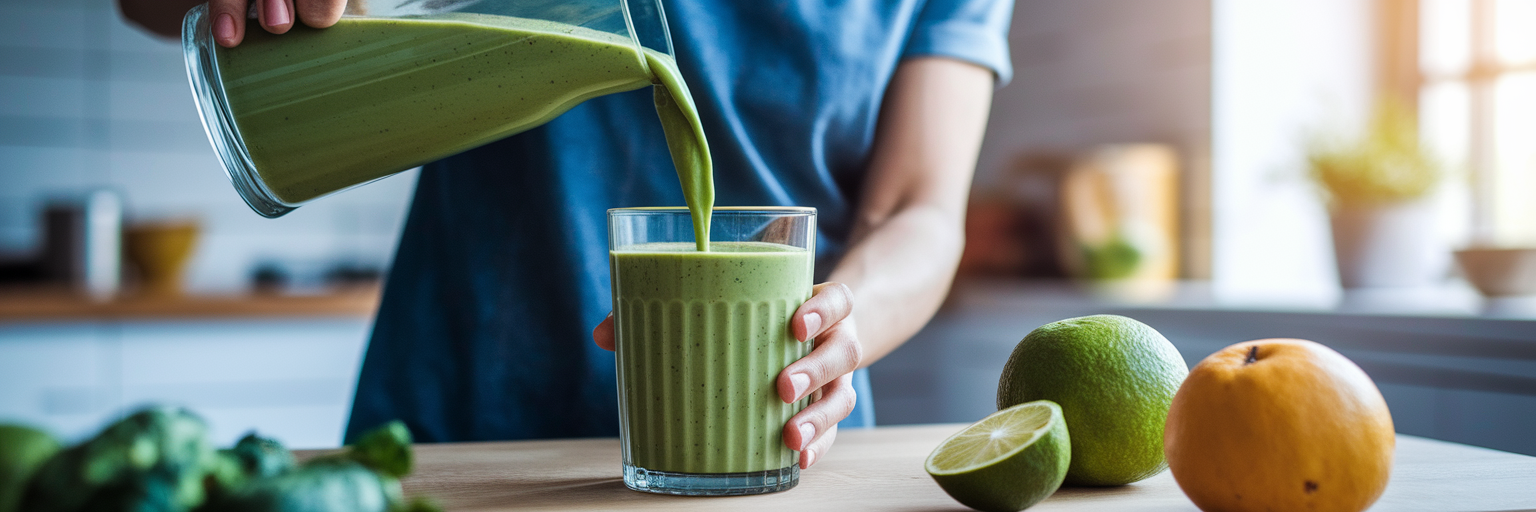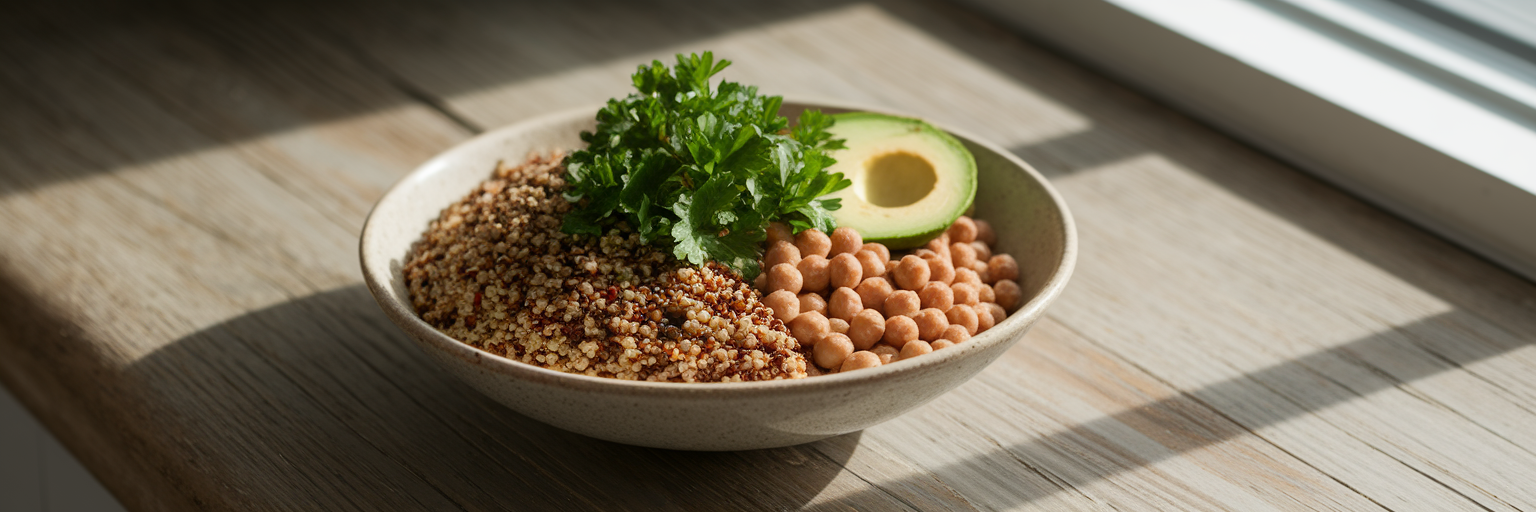Why Your Muscles Ache After a Good Workout
We've all been there. The day after a great workout, you feel that satisfying, deep ache in your muscles. It’s the kind of soreness that reminds you of the hard work you put in. This feeling, often called Delayed Onset Muscle Soreness (DOMS), is actually a sign of progress. It’s your body’s way of telling you that you’re getting stronger.
Think of it this way: when you challenge your muscles, you create tiny micro-tears in the muscle fibers. In response, your body initiates a natural repair process. This involves a temporary, localized inflammation as your system sends resources to rebuild those fibers, making them more resilient for your next session. So, that soreness isn't a problem to be avoided; it's a positive signal of adaptation.
While this process is completely normal, how quickly and comfortably you recover can be influenced by what you eat. The right nutrition can help manage the body's inflammatory response, helping you bounce back faster. If you want to reduce muscle soreness with diet, understanding the role of protein is a great place to start. It’s the primary building block your body uses for that essential repair work.
The Anti-Inflammatory Power of Plant Proteins
Moving from the general idea of diet to the specifics, plant-based proteins offer a unique advantage in managing post-workout inflammation. It’s not just about the protein itself, but the entire package it comes in.
The Hidden Benefits in Plants
Unlike animal proteins, vegan protein sources are packed with extra compounds like phytochemicals, polyphenols, and antioxidants. These are essentially the plant's own defense system, and when we eat them, we can borrow their protective benefits. They are a key reason why so many people turn to plant based anti inflammatory foods for wellness.
How Plants Calm Inflammation
So how do these compounds work? You can think of them as helpers that gently turn down the volume on your body's inflammatory signals. A 2024 study published by MDPI notes that plant protein foods are associated with anti-inflammatory effects due to these very phytochemicals and antioxidants. They work at a cellular level to help inhibit pro-inflammatory pathways, supporting a more balanced and efficient recovery process.
The Gut-Health Connection
There's another powerful component in plants that’s completely absent in animal foods: fiber. Fiber is crucial for feeding the good bacteria in your gut. A healthy gut microbiome is directly linked to lower levels of systemic inflammation throughout the body. By choosing plant proteins, you’re not only fueling muscle repair but also supporting a gut environment that helps keep inflammation in check. For more insights on how plant-based nutrition impacts overall wellness, feel free to explore our blog.
Plant Protein Versus Animal Protein for Recovery
When it comes to building muscle, all complete proteins get the job done. But for active individuals focused on efficient recovery, the source of that protein can make a real difference in how your body feels. The conversation around animal vs plant protein inflammation isn't about which is "good" or "bad," but about the overall effects of the foods they come from.
Research has shown that high consumption of certain animal proteins, particularly red and processed meats, is linked to higher levels of inflammatory markers like C-reactive protein (CRP). This is often attributed to the saturated fat and other compounds present in these foods. Plant proteins, on the other hand, tend to have the opposite effect, thanks to the anti-inflammatory compounds we just discussed.
You don't have to make an all-or-nothing switch. Research from the Harvard T.H. Chan School of Public Health suggests that simply eating a diet with a higher ratio of plant-to-animal protein can have significant health benefits. For anyone with an active lifestyle, managing inflammation is just as important as building muscle, and shifting that ratio is a practical way to support better recovery.
| Feature | Plant-Based Proteins (e.g., Lentils, Peas, Hemp) | Animal Proteins (e.g., Red & Processed Meats) |
|---|---|---|
| Inflammatory Potential | Low; contains anti-inflammatory compounds | Higher; can increase pro-inflammatory markers |
| Associated Nutrients | Fiber, antioxidants, phytochemicals | Saturated fat, heme iron, cholesterol |
| Gut Microbiome Impact | Supports a healthy gut with fiber | Lacks fiber; can negatively alter gut bacteria |
| Primary Recovery Benefit | Muscle repair + inflammation management | Primarily muscle repair |
This table compares the overall 'package' of nutrients and their effects on inflammation and gut health. Data is based on general findings from nutritional science regarding the composition of these food groups.
Top Vegan Proteins for an Active Lifestyle
Ready to add more plant power to your plate? Finding the best vegan protein for athletes is easier than ever. Here are a few top contenders that are perfect for supporting an active lifestyle and helping your body recover smoothly.
- Pea Protein: This is a true powerhouse for muscle repair. Pea protein is rich in Branched-Chain Amino Acids (BCAAs), particularly arginine, which is vital for muscle growth and recovery. The pea protein benefits for inflammation are tied to its ability to provide the building blocks for repair without the inflammatory compounds found in some other sources. It’s a clean, effective option, which is why it’s a key ingredient in high-quality formulas like our Chocolate Vegan Protein.
- Hemp Protein: Hemp is a fantastic choice because it offers a unique profile. It contains all nine essential amino acids, plus a healthy dose of anti-inflammatory omega-3 and omega-6 fatty acids. It's also a great source of fiber and minerals like magnesium and iron, and it’s known for being very easy to digest.
- Lentils and Beans: Don't overlook these budget-friendly heroes! Lentils, chickpeas, and black beans are loaded with protein, fiber, and antioxidants that work together to fight inflammation systemically. They are incredibly versatile and can be added to soups, salads, and main dishes to boost your protein intake while supporting overall health. For some delicious inspiration, check out these 3 easy vegan protein recipes you'll actually crave.
- Protein Blends: A common question is whether vegan proteins are "complete." Modern vegan protein powders solve this by combining different plant sources, like pea and rice protein. This creates a robust and complete amino acid profile that is just as effective as whey for muscle synthesis, but with the added anti-inflammatory and gut-health benefits of plants.
Making Plant-Based Protein Work for You
Switching to or incorporating more plant-based protein is straightforward, but it helps to know a few things to make the transition seamless. Let's address a couple of common questions about using vegan protein for muscle recovery.
First, the amino acid question. The old myth that you need to meticulously combine different proteins at every single meal to get a "complete" protein has been widely debunked. As long as you eat a variety of plant-based foods throughout the day—like beans, nuts, seeds, and whole grains—your body will get all the essential amino acids it needs to repair and build muscle effectively.
Another point is digestibility. For some people, a sudden increase in beans and legumes can cause temporary digestive discomfort. If this is a concern, try starting with smaller portions or opting for sprouted versions like tempeh or sprouted lentils, which are easier on the gut. When it comes to protein powders, look for high-quality blends that include digestive enzymes to aid absorption.
Ultimately, the key is variety and consistency. Listen to your body and experiment with different sources to find what makes you feel your best. If you’re ready to get started, we invite you to explore our complete collection of plant-based products. What’s your favorite plant-based meal for recovery? Share it in the comments below!





